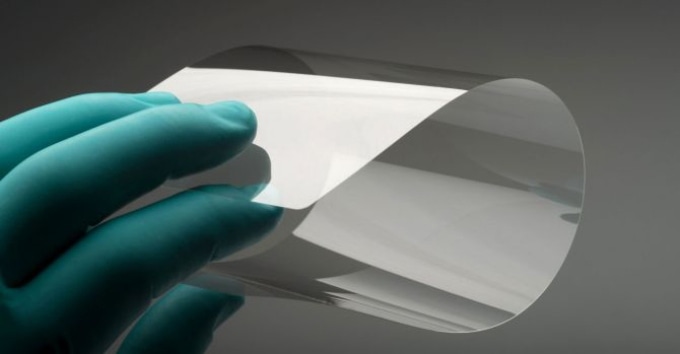Jan 19 2017
SolarWindow Technologies, Inc. (OTCQB: WNDW), the leading developer of transparent electricity-generating coatings for glass windows and flexible veneers, today announced plans to develop electricity-generating flexible glass.
 Corning� Willow� Glass (Source: Corning)
Corning� Willow� Glass (Source: Corning)
SolarWindow scientists and engineers recently applied layers of the company’s liquid coatings on to Corning® Willow® Glass and laminated them under conditions that simulate the high pressure and temperatures of the manufacturing processes used by commercial glass and window producers. The result is a bendable glass ‘veneer’, as thin as a business card, which generates electricity.
SolarWindow anticipates installing these sheets of electricity-generating glass veneers over existing skyscraper windows, turning entire buildings into vertical power generators and helping reduce their carbon footprint. These same veneers could be applied to flat and curved surfaces on automobiles, trucks, buses, airplanes, and boats to generate onboard electrical power.
“Along with our SolarWindow™ liquid coatings for rigid glass, we’re excited to expand our capabilities with brand new ways of generating clean electricity on almost any surface imaginable by using flexible Corning Willow Glass,” said John Conklin, President and CEO of SolarWindow. “As leaders in the sector, we’re setting out a clear vision for the future with this new, innovative technology.”
SolarWindow™ products are being developed in collaboration with the U.S. Department of Energy’s National Renewable Energy Laboratory (NREL) under a Cooperative Research and Development Agreement (CRADA). The primary development goal of the CRADA is the commercialization of SolarWindow™ products.
“While generating electricity on flexible glass presents obvious commercial opportunities, this approach is especially attractive to high-speed roll-to-roll manufacturing for maximizing output while lowering production costs,” said Dr. Maikel van Hest, a Senior Scientist in the Thin Film Material Science and Processing Group within the Material Science Center at NREL.